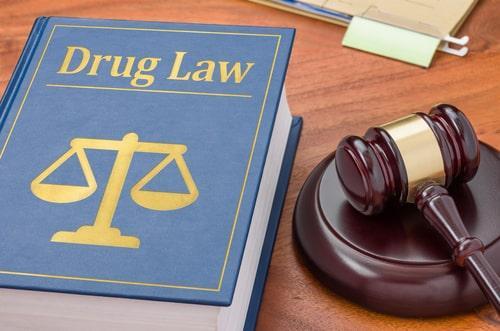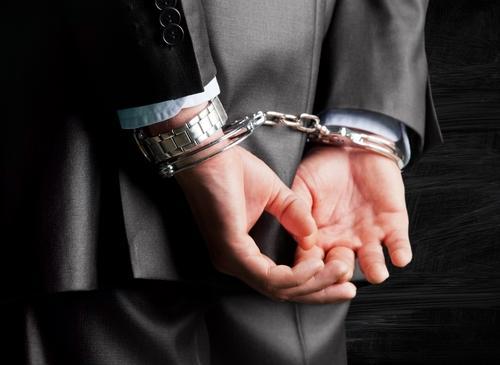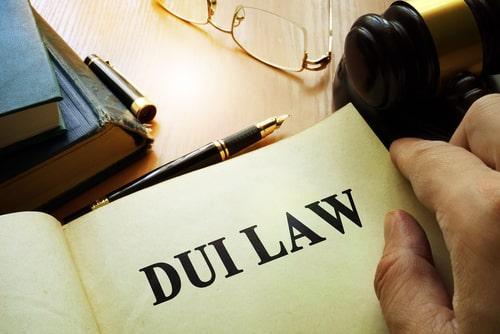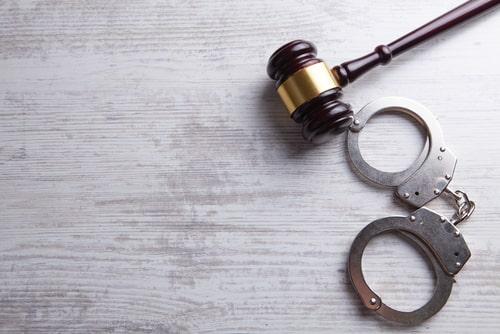Recent Blog Posts
Can Minors Face Criminal Charges for “Sexting” in Texas?
 In a digital age where people use smartphones and other electronic devices constantly, "sexting" has become more common. People may exchange sexually explicit messages, photographs, videos, and other material through text messages, email, or social media. However, when minors engage in these activities, they could potentially face criminal charges, and if explicit photos or videos are sent to multiple people, this could even result in accusations related to the possession or distribution of child pornography. By understanding the legal consequences of sexting, parents and children can address concerns about these issues and determine what steps can be taken to address any accusations of criminal offenses.
In a digital age where people use smartphones and other electronic devices constantly, "sexting" has become more common. People may exchange sexually explicit messages, photographs, videos, and other material through text messages, email, or social media. However, when minors engage in these activities, they could potentially face criminal charges, and if explicit photos or videos are sent to multiple people, this could even result in accusations related to the possession or distribution of child pornography. By understanding the legal consequences of sexting, parents and children can address concerns about these issues and determine what steps can be taken to address any accusations of criminal offenses.
Laws Addressing the Transmission of Visual Material Depicting Minors
In some cases, teenagers may make the mistake of sending sexually explicit messages and images of themselves or others without being fully aware of the consequences. These actions may start out as consensual activities between couples who are dating, but images or videos may be shared with others, and they could potentially be used to bully, harass, or threaten a child who is depicted. To address this issue and prevent explicit materials from being used inappropriately, Texas law has outlined situations where these actions may be considered crimes.
HBO Series Love and Death Dramatizes Murder Defense by Don Crowder
 True crime stories have been very popular in recent years. The details of murder cases and other real-life incidents involving criminal investigations and prosecutions can be fascinating. In addition to providing insight into why people commit crimes, these stories can demonstrate how the legal process works and the strategies that criminal defense attorneys may be able to use to help clients avoid convictions. One recent true crime series that was created by HBO, Love and Death, detailed the story of accused murderer Candy Montgomery, who was represented by Don Crowder, the father-in-law of our founding attorney, Darlina Crowder.
True crime stories have been very popular in recent years. The details of murder cases and other real-life incidents involving criminal investigations and prosecutions can be fascinating. In addition to providing insight into why people commit crimes, these stories can demonstrate how the legal process works and the strategies that criminal defense attorneys may be able to use to help clients avoid convictions. One recent true crime series that was created by HBO, Love and Death, detailed the story of accused murderer Candy Montgomery, who was represented by Don Crowder, the father-in-law of our founding attorney, Darlina Crowder.
Don Crowder’s Defense of Candy Montgomery in Collin County
In 1980, Candy Montgomery, a 30-year-old housewife and mother living in Wylie, Texas, was charged with the murder of Betty Gore. Mrs. Montgomery had been having an affair with Mrs. Gore’s husband, Allan Gore, and although they had ended their relationship, their families were still friendly with each other due to their participation in their church and their children going to school together. On June 13, 1980, Mrs. Gore reportedly confronted Mrs. Montgomery about the affair, and this led to Mrs. Montgomery killing Mrs. Gore with an ax.
5 Activities That Can Lead to Federal Drug Trafficking Charges
 Criminal charges related to controlled substances can be very serious. Those accused of possessing, selling, or distributing these substances may be charged with drug crimes, and they may face harsh penalties if convicted. While many drug crimes are charged at the state level, there are some situations where people involved in these cases may face federal drug trafficking charges. By understanding the activities that could potentially lead to federal charges and working with an attorney who has experience defending clients in federal courts, alleged offenders can take steps to defend themselves.
Criminal charges related to controlled substances can be very serious. Those accused of possessing, selling, or distributing these substances may be charged with drug crimes, and they may face harsh penalties if convicted. While many drug crimes are charged at the state level, there are some situations where people involved in these cases may face federal drug trafficking charges. By understanding the activities that could potentially lead to federal charges and working with an attorney who has experience defending clients in federal courts, alleged offenders can take steps to defend themselves.
Actions and Offenses Related to Drug Trafficking
The laws of the United States make it illegal to distribute, manufacture, or possess with the intent to distribute or manufacture controlled substances. There are a number of reasons people may be accused of violating these laws, including:
Are School Employees Prohibited From Relationships With Students?
 Over the past few decades, several high-profile cases have involved inappropriate relationships between teachers and students. In Texas, there are laws that specifically prohibit these types of relationships, and teachers who have sex with students or otherwise engage in sexual conduct involving minors may face criminal charges. However, there may be some confusion about whether these prohibitions extend to other types of educators or people who work at a school. By understanding who is covered by these laws and when a person may face accusations of crimes against children, those who could potentially face criminal charges can be prepared to defend themselves should the need arise.
Over the past few decades, several high-profile cases have involved inappropriate relationships between teachers and students. In Texas, there are laws that specifically prohibit these types of relationships, and teachers who have sex with students or otherwise engage in sexual conduct involving minors may face criminal charges. However, there may be some confusion about whether these prohibitions extend to other types of educators or people who work at a school. By understanding who is covered by these laws and when a person may face accusations of crimes against children, those who could potentially face criminal charges can be prepared to defend themselves should the need arise.
Laws That Affect Relationships Between Educators and Students
The Texas Penal Code defines an offense known as "improper relationship between educator and student," making it a crime for a teacher or other educator to engage in sexual intercourse or sexual conduct with a student at a school where they work. Specifically, the law prohibits these types of relationships with students at elementary schools and high schools, regardless of whether a school is public or private. Notably, college students are not covered by this law, although if a professor or other employee at a college engages in sexual conduct with a student who is younger than 17 years old, they could potentially be charged with an offense such as sexual assault of a child or indecency with a child.
When Can White Collar Crimes Lead to Federal Charges?
 Offenses that are classified under the category of white-collar crimes may seem to be less serious than some other types of criminal charges. These crimes are usually of a financial nature, and they may not involve any direct contact between an alleged offender and the alleged victim(s). Unlike violent crimes or sex crimes, they usually will not result in physical harm. However, because white-collar crimes may lead to significant financial losses for individuals, financial institutions, or other businesses or organizations, they are taken very seriously by law enforcement, and in some cases, those who are accused of these offenses may face federal charges.
Offenses that are classified under the category of white-collar crimes may seem to be less serious than some other types of criminal charges. These crimes are usually of a financial nature, and they may not involve any direct contact between an alleged offender and the alleged victim(s). Unlike violent crimes or sex crimes, they usually will not result in physical harm. However, because white-collar crimes may lead to significant financial losses for individuals, financial institutions, or other businesses or organizations, they are taken very seriously by law enforcement, and in some cases, those who are accused of these offenses may face federal charges.
Financial Crimes and Other Related Federal Offenses
When white-collar crimes occur at a smaller scale, affecting a limited number of people or taking place within a specific geographical area, they may be limited to state-level charges. However, larger-scale offenses that affected people in several states or involved the transfer of money across international borders are more likely to be prosecuted at the federal level. "Interstate or foreign commerce" is a key element in many of these cases, and federal officials may prosecute people for offenses that allegedly involve the movement of money or assets throughout several states or countries.
What Texas DWI Charges Will Apply if Someone Was Injured or Killed?
 The circumstances surrounding a charge of driving while intoxicated (DWI) can vary significantly. While DWI is a serious criminal offense, first-time offenders will usually be charged with a Class B misdemeanor. They will be required to serve a minimum sentence of 72 hours in jail, and the maximum sentence is 180 days (six months). They may also be fined up to $2,000, and their driver's license may be suspended for up to two years. The penalties can increase significantly if a person faces DWI charges for a second or subsequent time, and other aggravating factors may also cause DWI to be charged as a felony, regardless of previous offenses. These include the injury or death of someone due to drunk or intoxicated driving. By understanding the penalties for these offenses, those who have been arrested and charged with crimes can determine their best options for defense.
The circumstances surrounding a charge of driving while intoxicated (DWI) can vary significantly. While DWI is a serious criminal offense, first-time offenders will usually be charged with a Class B misdemeanor. They will be required to serve a minimum sentence of 72 hours in jail, and the maximum sentence is 180 days (six months). They may also be fined up to $2,000, and their driver's license may be suspended for up to two years. The penalties can increase significantly if a person faces DWI charges for a second or subsequent time, and other aggravating factors may also cause DWI to be charged as a felony, regardless of previous offenses. These include the injury or death of someone due to drunk or intoxicated driving. By understanding the penalties for these offenses, those who have been arrested and charged with crimes can determine their best options for defense.
UPDATE: What Happens if You Get Caught Growing Marijuana in Texas?
 Originally published: May 31, 2022 -- Updated: April 25, 2023
Originally published: May 31, 2022 -- Updated: April 25, 2023
Update: As noted below, people who grow marijuana plants may be charged with drug possession, and they could potentially face serious penalties based on the amount of marijuana in their possession. However, those who cultivate marijuana may also be charged with possession with intent to distribute, especially if other factors indicate that a person intended to sell or deliver marijuana to others.
In some cases, a search conducted by police officers or other state or federal law enforcement officials may find items that could be used to package and distribute drugs to others, such as scales or baggies, or witnesses may state that they observed the person accepting payments in exchange for marijuana. These factors may cause an offense to be elevated from drug possession to drug delivery, and in some cases, a person may even face charges of drug trafficking.
Why Do So Many Criminal Defendants Give Up Their Right to Remain Silent?
 You do not have to be arrested to know that criminal defendants are given the right to remain silent. Anyone who has watched enough true crime documentaries or police-related television shows can probably recite the Miranda Warning from heart.
You do not have to be arrested to know that criminal defendants are given the right to remain silent. Anyone who has watched enough true crime documentaries or police-related television shows can probably recite the Miranda Warning from heart.
Participating in a police interrogation is one of the worst things you can do if you have been arrested and charged with a criminal offense. It is too easy to say something that damages your case or even make an innocent remark that is taken out of context and later used against you. Although anybody accused of a crime has the right to remain silent and avoid incriminating themselves, many people give up this right and speak freely to the police without consulting with a lawyer first – often to their detriment.
Many Criminal Defendants Do Not Understand Their Rights
The United States Constitution protects several crucial rights. Among these rights is the right to avoid self-incrimination. The Fifth Amendment guarantees that criminal defendants cannot be forced to give testimony that would incriminate them. This is the basis of our right to remain silent and refuse questions from the police.
Explicit Online Discussions with a Minor Can Be a Felony Offense
 In today's modern age, making friends with others online is not uncommon. Many people communicate with strangers through online games, chatrooms, or discussion forums. However, it is important to note that these types of discussions can lead to criminal charges in some cases. If you are accused of discussing sexually explicit topics with somebody under the age of 17, you can be charged with a felony offense in Texas. You can face felony charges even if you did not know that the person you were talking to was a minor.
In today's modern age, making friends with others online is not uncommon. Many people communicate with strangers through online games, chatrooms, or discussion forums. However, it is important to note that these types of discussions can lead to criminal charges in some cases. If you are accused of discussing sexually explicit topics with somebody under the age of 17, you can be charged with a felony offense in Texas. You can face felony charges even if you did not know that the person you were talking to was a minor.
Anybody in this situation should reach out to a criminal defense lawyer who is experienced in child-related criminal defense cases as soon as possible. A conviction for online solicitation of a minor has the potential to dramatically alter the course of your life.
What Counts as Online Solicitation of a Minor?
When people talk to each other online, they often say things that they would not say in real life. However, having sexual conversations with another person can be a criminal offense in certain situations.
Beware: Marijuana Charges Can Lead to Federal Prison Time
 Last October, President Biden issued a proclamation pardoning federal convictions for simple marijuana possession offenses. The proclamation is just one step in the trend toward reducing and, in many cases, eliminating criminal penalties for marijuana-related offenses.
Last October, President Biden issued a proclamation pardoning federal convictions for simple marijuana possession offenses. The proclamation is just one step in the trend toward reducing and, in many cases, eliminating criminal penalties for marijuana-related offenses.
Although many states have decriminalized or legalized marijuana, marijuana flower and THC products are still considered Schedule I controlled substances under federal law. Make no mistake, marijuana-related offenses can still lead to significant penalties - especially if you are accused of large-scale cultivation or distribution of marijuana.
Drug Trafficking Offenses Related to Cannabis or Marijuana
Although it is still illegal in Texas, being caught with a small quantity of marijuana will not typically lead to significant jail time. However, the same is not true for the possession of larger quantities of marijuana or for the cultivation, distribution, or trafficking of the substance.

















